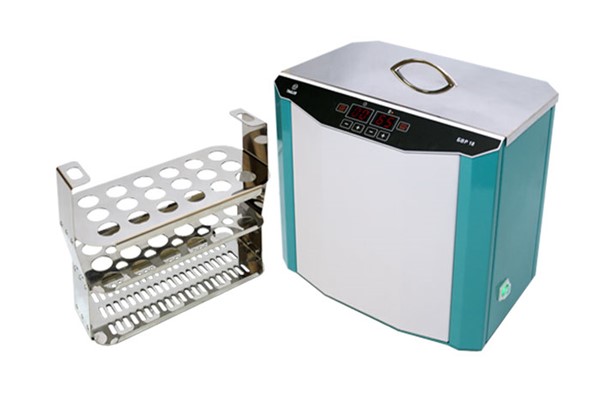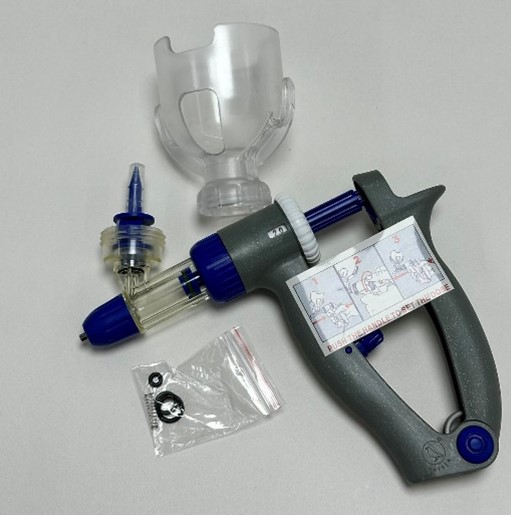Adding Vitamin D to the Diet May Improve Cow Immunity

Known as a critical component of the body's ability to absorb and retain calcium, which is essential for processes such as bone development and maintenance, vitamin D also plays an important role in immune defense. One article published in the October issue of the Journal of Dairy Science examines the effects of various vitamin D sources and dosages on dairy cows.
This study by scientists at the University of Florida, Gainesville focused on pregnant dairy cows, as pregnancy and lactation increase the need for calcium, which can affect animal stores of this micronutrient, and these dynamic changes occur when cows are most vulnerable to disease.
"Vitamin D may enhance the ability of the immune response to confer resistance to bacterial infections," says author Jose Eduardo P. Santos.
In dairy cows, as in humans, vitamin D can be produced by the body when the skin is exposed to sunlight, or it can be absorbed from foods. The researchers studied dietary supplementation of two different forms of vitamin D, cholecalciferol or calcidiol, one or three milligrams above the amount provided in the standard dairy cow diet, which contained 0.02 mg of cholecalciferol per kilogram of dry matter. Cholecalciferol is the form of vitamin D commonly added to cows' diets, but Santos points out that a less used form, calcidiol, is one step forward in vitamin D activation and has the potential benefit of maintaining adequate status with less daily food.
Repeated blood sampling allowed the team to compare circulating concentrations of vitamin D metabolites, minerals and metabolites in the blood, as well as the concentration and activity of white blood cells, which are essential for the body's ability to respond to infections. The team also extracted DNA from white blood cells to quantify the expression of several genes associated with immune function.
The researchers found that cows given vitamin D in the form of calcidiol had increased expression of genes encoding proteins essential for cell adhesion and migration, cell-to-cell communication, pathogen recognition, and pathogen eradication, compared to those given cholecalciferol. Such changes may increase the ability of the innate immune system to resist infections during early lactation.
The changes observed in this experiment suggest that providing vitamin D in excess of the amounts needed to prevent a suspected deficiency, in particular by adding calcidiol, may play a role in supporting innate immune defenses in dairy cows.
Read together with it:
- Его дом - как зоологический музей, а коллекция чучел - под №2 в Беларуси. Побывали у таксидермиста, путешественника и романтикаГеннадий Пузанкевич Новости темы Более 20 стран, два восхождения, веломарафон на 10 тыс. км и три автопробега, самый длинный - в 27 тыс. км. Герой нашего проекта - 66-летний - не только отчаянный путешественник, который и у каннибалов живет неделями, и на горы поднимается в сланцах, но и один из лучших в стране таксидермистов. При встрече понимаешь: перед тобой человек с тонким чувством юмора, фил...
- Lukashenko: Belarus and the Kirov region intend to double trade turnoverJanuary 19, Minsk . Belarus and Russia's Kirov Region intend to double trade. Belarusian President Alexander Lukashenko announced this on January 19 at a meeting with Kirov Region Governor Alexander Sokolov, BelTA reports. "As for the economy, our trade turnover isn't particularly high. There are subjective reasons, and objective ones – that's understandable. It's around $11......
- "Упаси вас Господь!" Лукашенко дал жесткий наказ руководству Витебской области15 января, Минск. Президент Беларуси Александр Лукашенко, принимая решение Александра Рогожника председателем Витебского облисполкома, подчеркнул необходимость обеспечить сохранность крупного рогатого скота, особенно молодняка, передает корреспондент БЕЛТА.Глава государства, обозначая основные задачи для нового руководителя, сделал акцент на решении проблемы с падежом скота. "Вам надо прилично эти...
- Искусство «кумысного» сомелье, генетика животных и секреты степного партнерства✔О чем эта статья Глубокий разговор в тишине ночной Астаны о том, почему генетика - это не только наука, но и вопрос выживания нации. Дастанбек Баймуканов объясняет, как древние степные традиции партнерства и справедливости конвертируются в современную прибыль, и почему один племенной верблюд по своей ценности равен элитному внедорожнику. ✔Об эксперте Дастанбек Асылбекович Баймуканов - известный к...
- VR farms, BulbaTech, a racing truck. What's so special about the "My Belarus" exhibition?From December 19 to February 23 , the Minsk International Exhibition Center (MIEC) will become the heart of modern Belarus: the "My Belarus" exhibition opens its doors. During these days, residents and visitors can explore innovations, cultural discoveries, and fully immerse themselves in the country's achievements. Eight thematic sections—from "Economic Engine" and "Progressive Medicine" to "Spor...
- Лечение рака в пробирке, недорогие аккумуляторы. Над какими проектами работают белорусские ученыеНа недавнем совещании по вопросам развития научной сферы и деятельности Национальной академии наук Беларуси глава государства в качестве принципиальной задачи обозначил устранение разрыва между лабораторными разработками и потребностями реального сектора. Президент отметил, что наука в ближайшую пятилетку должна стать настоящим драйвером развития страны. Речь о практикоориентированности научных ис...




























































